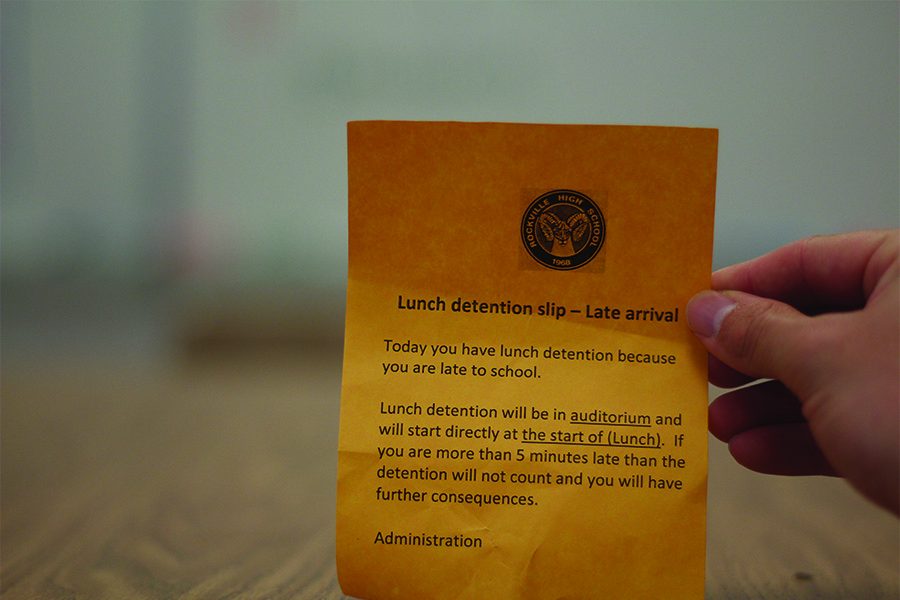Tardy Policy Causes Controversy
Over one hundred twenty-five students were surprised when they received lunch detention on the first day of a tardy policy that was started on April 4.
June 3, 2019
Administration recently took action against student tardiness after staff members raised concerns with the increase in late arrivals. On the first day of the new policy, April 4, over 125 students were given lunch detention for arriving late to school. However, the rollout of the policy surprised many students and has since been implemented in a different, far less severe way. RHS administration should be clearer when rolling out new policies that will have a significant impact on students, such as the aforementioned detention policy.
Many students stated that they felt the school did not provide adequate notice about the new policy; others feel that the policy was too harsh. After one week of detentions in the auditorium, they are no longer being issued and in lieu of having sign in sheets, the administration and security are conducting front door sweeps between 7:45 and 7:55 a.m.
The standard MCPS procedure for processing unexcused tardies is to simply record them.
“Unexcused tardies will be recorded and three unexcused tardies will equal one unexcused/unlawful absence. The counselor will consult with the student and the parents/guardians, verify reasons for the absences and determine the appropriate interventions,” according to the Montgomery County Student Rights and Responsibility Handbook.
To get to school in the morning, all students must use Baltimore Road, the one-lane road notorious for its morning traffic. Although students have a responsibility to try to get to school on time, some days it may be out of a student’s control. For those who ride the bus, whether it be the public or school bus, those people are beholden to the driver’s schedule; there is not much that a student can do to avoid bad traffic or a late transit bus.
The administration does not seek to punish students, but rather wants to make sure the students are conducting themselves properly by showing up to class on time, Principal Billie-Jean Bensen said. Furthermore, the school has not been uncaring about tardy students who were stuck in traffic. On April 5, Bensen excused all tardy students from detention. This act implies that a day after the policy’s implementation, it was already clear that there may be problems with the blanket rollout. When any school including RHS rolls out such a drastic policy, it should be done in a way that ensures there is a clear line of communication between administration, students and parents.
To warn students of a new policy, especially one as impactful as this new tardy policy, the school could have done a school-wide announcement telling students about the concern over tardiness and then announcing when that the new policy would be implemented. The school also could have sent emails or letters to parents informing them about the new consequences for being tardy.
Administrations have every right to do what they think is best to help their students, but the lack of communication among the administration, student body and parents regarding this new policy was unclear. The school just wants what is best for the student body, but the student body must be aware when a new policy will be rolled out.




